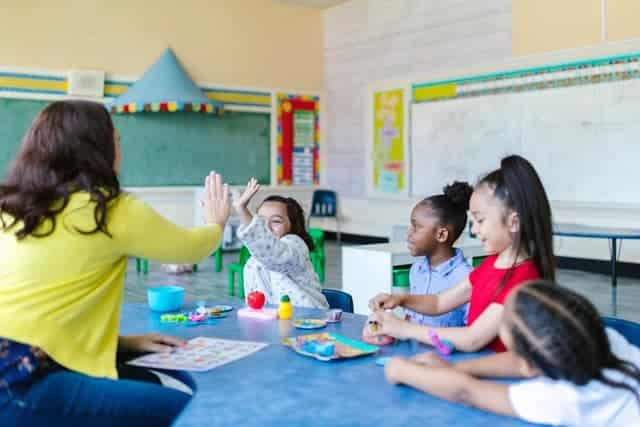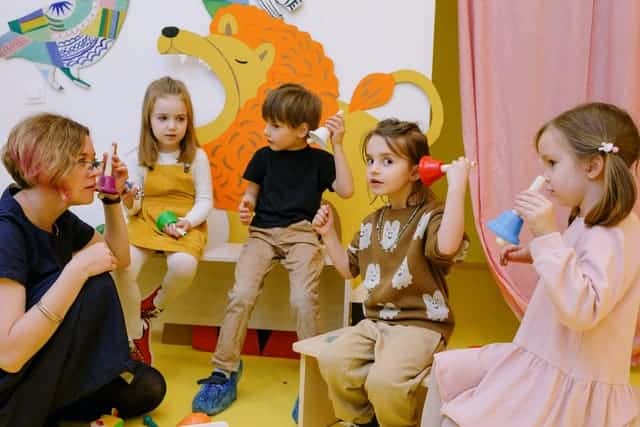Humans are naturally social creatures. Community helps with mental health. While we have a need for community, not everyone has the same abilities to connect with others. Educators are often responsible for sharing the best techniques on how to teach social skills to help create confidence. At Soul Shoppe, we specialize in helping educators and parents learn how to teach and model social skills and social-emotional learning techniques.
Strong social skills create a solid foundation for long-term success in life. A holistic teaching approach includes exercises, lessons, and learning opportunities for children.
How To Teach Social Skills
It’s good to review appropriate social skills with children frequently. As adults, it’s been a long time since we’ve learned appropriate social skills, and we might take for granted that social skills are obvious, when to a child they might not be.
As far as teachable skills go, social skills have an advantage in the classroom. Learning how to socialize in a diverse environment can help skills grow and they will get stronger with practice. Additionally, there are ways to practice them virtually.
How to Teach Social Skills to a Child in the Classroom

The method for deciding how to teach social skills to a student is similar to teaching other skills. It also has differences.
Teaching social skills to a child is the same as teaching other skills in that it requires demonstration, imitation, and repetition. After all, that’s how we teach math or reading skills.
Designing how to teach social skills is a different process in its particulars.
In order to do it well, an educator must follow the interests of the child. Children come from different backgrounds, and an educator must adjust and respond to this.
An educator must learn to ask the right questions, discovering what social skills the child needs to strengthen and which ones they already understand.
Roleplaying can be a powerful tool for an educator who teaches social skills to elementary school students. With demonstrations of example scenarios, children can practice social skills in controlled settings.
A more complicated, but essential, aspect of teaching social skills to a child includes teaching empathy. Asking questions like, “Can you imagine how that makes them feel?” will encourage this.
Children have not yet learned all the coping skills that they will eventually need, and social skills involve so many emotions that they will inevitably create strong emotions. Work within the limitations of the students involved. Practicing to the point of frustration can hinder results. (Harvard)
In the end, the most important aspect of teaching social skills is being a good role model. Children learn so much by watching that the most powerful teaching aid for any educator is their own behavior.
List of Social Skills to Teach

It’s important not to assume that social skills might come naturally to someone. No one knows the assumptions by which anyone else is raised, and it is the responsibility of educators to create a setting where children can learn the skills they need to prepare for a rewarding life.
When deciding how to teach social skills to students, begin with a list of subjects. Treat it like any other discipline. Here is a list of subjects to help you get started:
- Sharing. For some children, sharing their thoughts and feelings doesn’t come naturally. Or, they might be nervous about sharing thoughts and feelings. Additionally, they might not know when it’s socially acceptable or appropriate. Encouraging sharing is like granting permission, which helps to foster this.
- Listening. Children typically have the natural ability to absorb what’s going on around them. However, not all children have a natural instinct to quietly listen and pay attention to the people around them. You can use listening skills activities such as those outlined here, to help children develop these skills.
- Following directions. Cooperating with community expectations is a large part of developing social skills. Children shouldn’t necessarily learn to follow instructions without thinking, but it’s valuable to learn how to cooperate with the goals of the group and recognize when an authority figure has a reasonable direction for their goals.
- Collaborating and cooperating. Children must learn to collaborate and cooperate with their peers. This is a large aspect of creating strong social skills. It’s valuable for children to learn how to respect and participate in community activities. We provide some ideas for cooperative games for kids here.
- Patience. This is an important skill and can be particularly challenging to develop in a world of instant gratification. Many social situations require waiting calmly and graciously. Intentionally slowing some things down in the classroom and creating situations where children must wait will help them practice patience.
- Empathy. Understanding how others may feel and the ability to consider these feelings is a pillar of social awareness. Teaching empathy can be incorporated through everyday interactions and through planned activities. We provide some ideas here.
- Respecting boundaries. We don’t necessarily need to know why people have certain boundaries. However, it’s important children learn to respect the boundaries that people set.
- Positivity. It’s amazing how powerful it can be to put a positive spin on realities and how much this can improve social interactions.
For some children, a few of these social skills will seem intuitive. When deciding how to teach social skills to a child, it’s important to recognize that not all social skills are intuitive, and yet all social skills should be learned and exercised. (Homer)
Teaching Social Skills Virtually
If unable to teach social skills in the classroom, or if an educator would like assistance teaching social skills, you can receive help with virtual social learning activities. Soul Shoppe provides social emotional learning programs for children and educators that can be completed online. Soul Shoppe strategies encourage empathy and emotional awareness in children. Whether helping in the classroom or assisting parents at home, Soul Shoppe brings social skills to the forefront of the discussion. Click for more information on SEL Programs for Elementary Schools or our parent support programs.
You May Also Like:
Enseñar a los niños cómo calmarse a sí mismos
How to Manage Emotions in a Positive Way
Cómo hacer amigos en la escuela


